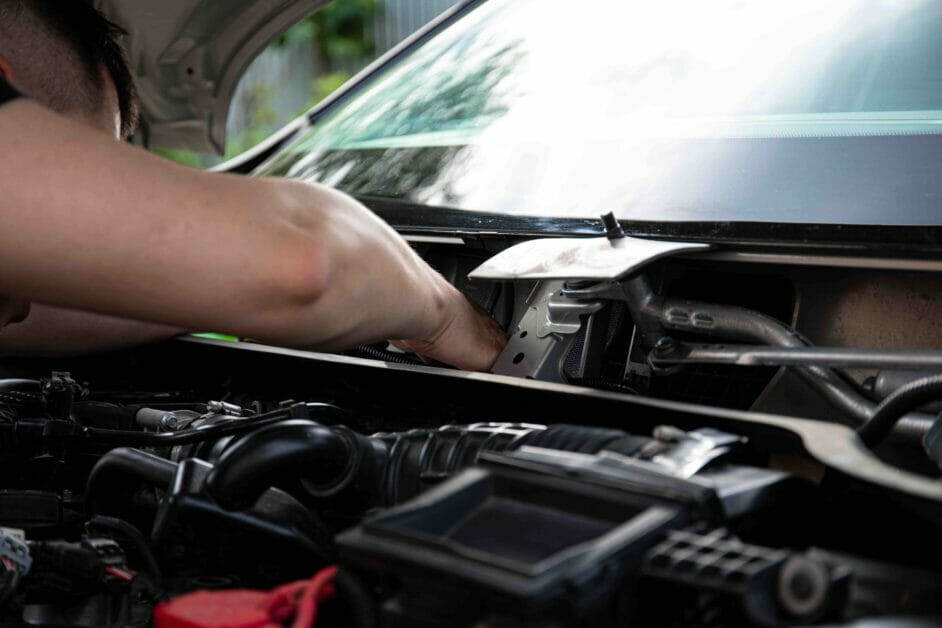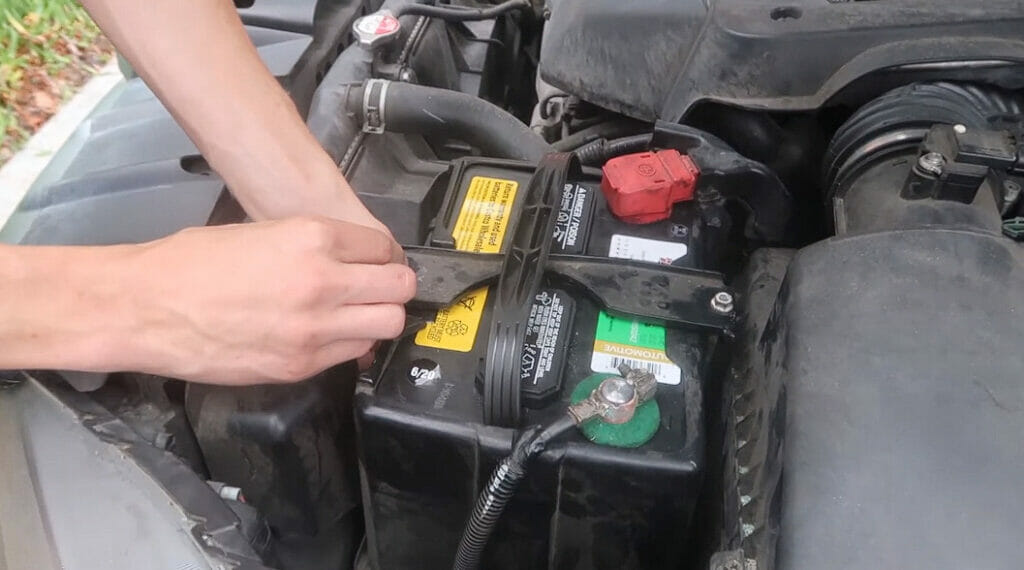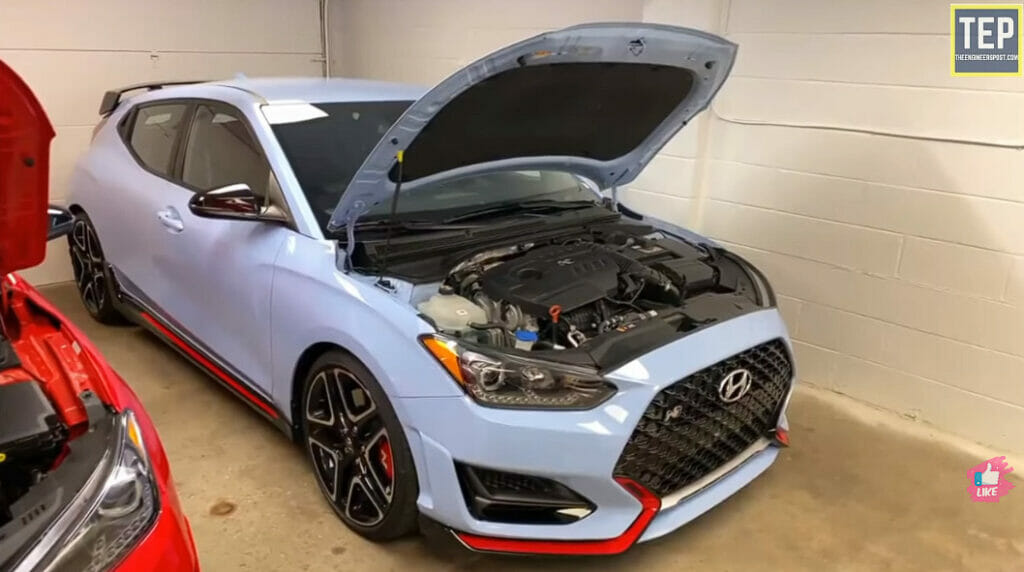Can a Weak Battery Cause Transmission Problems? (Find Out)

Contents
ToggleAs a car owner, staying vigilant of your vehicle’s health is important. One issue that can arise is transmission problems, which can lead to costly repairs.
But can a weak battery be the culprit?
The answer is yes, it can. When your battery begins to weaken, it can negatively impact your vehicle’s electrical system, including the transmission. This is because the transmission control module, which controls the shifting of gears in an automatic transmission, relies on the battery to function properly.
Fret not, as I’ll dive deeper to help you understand more about how a weak battery can cause transmission problems and the potential impact a weak battery can have on your car’s ability to shift gears smoothly below.
How a Weak Battery Affects the Transmission

Video | Michael Boggess
Your car’s transmission relies on various electrical components to function properly. These components, such as the solenoids and sensors, require a steady flow of electricity to function correctly.
If your car’s battery is weak, it may not provide enough power to these components, causing them to malfunction.
When transmission components fail to receive the necessary electrical power from the battery, you may experience various transmission problems.
For example, shifting gears may become difficult or delayed, or you may notice erratic shifting. Your car may also jerk or hesitate when shifting gears, which can be dangerous if driving at high speeds.
And it’s not just the transmission control module that relies on the battery. Your car’s onboard computer, starter, and alternator all need the battery to operate.
Thus, any issues with the battery can have a ripple effect on the rest of your vehicle’s system.
Impact of a Weak Battery on Car’s Transmission
| Component | Function | Impact of Weak Battery |
|---|---|---|
| Transmission Control Module | Controls the shifting of gears in an automatic transmission | Insufficient power may result in poor shifting or failure to shift |
| Solenoids | Control the shifting of gears | Underpowered solenoids can result in delayed, hard, or failure to shift |
| Sensors | Monitor transmission operation and signal the control module | A weak battery may cause erroneous signals, leading to transmission malfunctions |
| Onboard Computer | Manages the automatic transmission | A weak battery can result in poor decision-making by the computer, leading to transmission problems |
| Starter & Alternator | Start the engine and supply power to the electrical system | Underperformance can negatively affect overall vehicle operation, including the transmission |
Transmission Issues Caused by a Weak Battery

Video | The Engineers Post
In my experience, I have seen a lot of odd transmission issues caused by a weak battery. Yes, that’s right! A battery not doing its job properly can indeed affect the transmission system.
The battery powers all the electrical components, including the sensors and solenoids that control the shifting of gears. It also powers the computer that manages the automatic transmission.
If the battery isn’t doing its job properly, it can cause many issues.
Here are some common transmission problems that a weak battery can cause:
- Delayed Shifting: When you push the accelerator pedal, your car may take longer than usual to change gears or shift down. This can be a sign that the battery is not providing enough power to the transmission system.
- Hard Shifting: You may notice your car shifting gears roughly or more violently than usual. This can occur when the solenoids responsible for shifting gears are not getting enough power from the battery.
- Failure to Shift: If the battery does not provide enough power to the transmission control module, the transmission may not shift. This can leave you stranded on the side of the road, unable to move the car.
To avoid these issues, it’s important to keep your battery in good condition and replace it before it fails.
Remember, the transmission is a complex and highly sensitive system that relies heavily on the battery and electrical components to function correctly.
This is why ensuring your battery is in good condition and fully charged is essential. Don’t overlook the importance of your car’s battery and its connection with your transmission’s health.
Furthermore, it’s also important to note that a weak battery isn’t the only possible cause of transmission problems.
Other issues like low transmission fluid levels or worn-out internal components can cause transmission problems.
When to Seek Professional Help

Video | The Engineers Post
If you’ve noticed any concerning changes to your vehicle’s transmission, it’s important to seek help from a professional mechanic.
Especially if you suspect the issue might be related to the battery, it can be tempting to try to solve it by replacing the battery.
However, transmission problems can be complex, and attempting DIY repairs without proper expertise and equipment can result in costly damage.
Here are a few signs that it’s time to seek out a trusted mechanic to diagnose and repair your transmission issues:
- Noises: Whether it’s a grinding, whining, or clunking sound from your transmission, unusual noises are never a good sign and can indicate various problems.
- Slipping: Are you experiencing difficulty accelerating or feeling a sudden jerk or lurch while driving? These are common signs of transmission slipping, which a weak battery or other issues can cause.
- Burning Smell: If you smell a burning odor from your car, it could be a sign of an overheating transmission. This is a serious issue that needs immediate attention from an experienced mechanic.
- Dashboard Warning Lights: While many things can trigger your car’s warning lights, it’s always important to investigate any warning lights related to the transmission or the battery.
Remember, transmission issues are not something to ignore or put off, and trying to fix them on your own can put you in danger and lead to costly repairs down the line.
If you’re unsure whether your battery is causing problems with your car’s transmission, a professional mechanic can diagnose the problem and offer the best solutions for safe and effective repairs.
References
Organizations
- Automotive Service Excellence (ASE). https://www.ase.com/
- Automotive Service Association (ASA). https://www.asashop.org/
Books
- “Auto Repair for Dummies” by Deanna Sclar
- “Automotive Electrical Manual (Haynes Techbook)” by John Harold Haynes and Ken Freund
Websites
- CarTalk. https://www.cartalk.com/
- YourMechanic. https://www.yourmechanic.com/
- AutoMD. https://www.automd.com/
Video References
Michael Boggess
The Engineers Post
How helpful was this article?
Were Sorry This Was Not Helpful!
Let us improve this post!
Please Tell Us How We Can Improve This Article.
